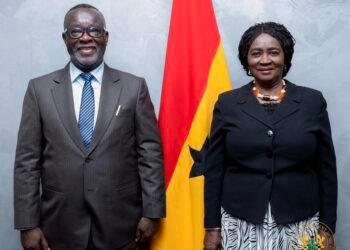In a stark revelation by the Ghana Grid Company Limited (GRIDCo), Ghana’s power capacity crisis has reached a critical juncture, demanding immediate and decisive action from the government.
The Ghana Grid Company Limited, the body responsible for the operation and maintenance of the National Interconnected Transmission System (NITS) and operation of the Wholesale Electricity Market (WEM) in its recent analysis of the country’s power supply situation painted a dire picture of a burgeoning peak demand of 3,618 MW surpassing the available capacity of 3,251 MW.
With an installed capacity of 5,626 MW, GRIDCo noted that the country is only utilizing approximately 58% of its total capacity, leaving a considerable deficit of 2,375 MW.
According to GRIDCo, the deficit in the country’s power supply chain is compounded by a 740 MW shortfall attributed to ongoing maintenance, further straining the electricity supply infrastructure.
Furthermore, GRIDCo’s analysis indicated that four thermal plants, collectively capable of generating 595 MW, are offline due to inadequate fuel supply, while a fault in the TICO unit 3 plant has rendered 120 MW unavailable until December 2024, impacting the entire year’s power generation by that capacity.
Consequently, GRIDCo’s analysis further indicated that the country currently faces a significant 1,455 MW shortfall in electricity generation capability, with gas supply limitations exacerbating the challenge.
According to GRIDCo, despite efforts to reduce power exports by 40% during peak hours to prioritise local demand, the gap persists.
Inadequate Gas Supply Compromises Power Supply
Even though GRIDCo in its analysis noted that Akosombo maintains its generation capacity due to its sufficient water level, the primary challenge confronting the country’s power sector is inadequate gas supply to power the various thermal plants.
Dr. Kwame Asiedu Sarpong, a Research Fellow at the Ghana Centre for Democratic Development (CDD-Ghana), reacting to the situation minced no words in his scathing criticism of the government’s handling of the power crisis.
Dr. Sarpong strongly condemned what he considered the government’s deceptive tactics, accusing it of treating citizens with disdain by peddling false narratives while disregarding the actual root causes of the power outages.
“When a government after receiving briefings from GRIDCO opts to lie to citizens, then you know they don’t care one bit about the impact these power outages are having on us. Sad!!!!”
Dr Kwame Asiedu Sarpong
He noted that the crux of the matter, as elucidated by GRIDCO’s analysis, lies in the dire financial constraints crippling the country’s electricity generation sector.
According to him, the Electricity Company of Ghana’s refusal to adhere to the prescribed load management schedule despite GRIDCO’s concerted efforts to devise one to mitigate the crisis has exacerbated the situation.

It is important to stress what has been earlier intimated by some renowned energy experts including Benjamin Boakye of ACEP and Nana Amoasi III of IES that at the heart of the country’s ongoing power crisis lies the stark reality of fiscal incapacity.
GRIDCO’s analysis underscored that the primary obstacle hindering the smooth operation of electricity generation is the government’s inability to procure adequate fuel supplies.
The implication is that without the requisite funds to purchase fuel, power plants would continue to be left idling, exacerbating the strain on an already fragile energy infrastructure.
Dr. Sarpong’s scathing rebuke of the government’s perceived misinformation campaign highlights the profound impact of the power outages on the populace.
The implications of the power crisis extend beyond mere inconvenience as it goes a long way of having profound socio-economic ramifications.
Businesses face disrupted operations, decreased productivity, and financial losses, while ordinary citizens grapple with the daily challenges of living without reliable electricity.
The revelation by GRIDCO without equivocations serves as a wake-up call, laying bare the need for decisive action to address the underlying financial challenges plaguing Ghana’s power sector.
With the government’s credibility called into question, there is an imperative for greater transparency and accountability in addressing the nation’s energy woes.
Failure on the part of the government to act swiftly and decisively risks deepening the crisis, with far-reaching consequences for the country’s economic prosperity and the well-being of its citizens.
READ ALSO: Post-Easter Rally Sees GSE Rebound Strongly























